Strictly Personal
‘The Kili’ shows we can also run our way to elusive African unity, By Jenerali Ulimwengu
Published
1 year agoon
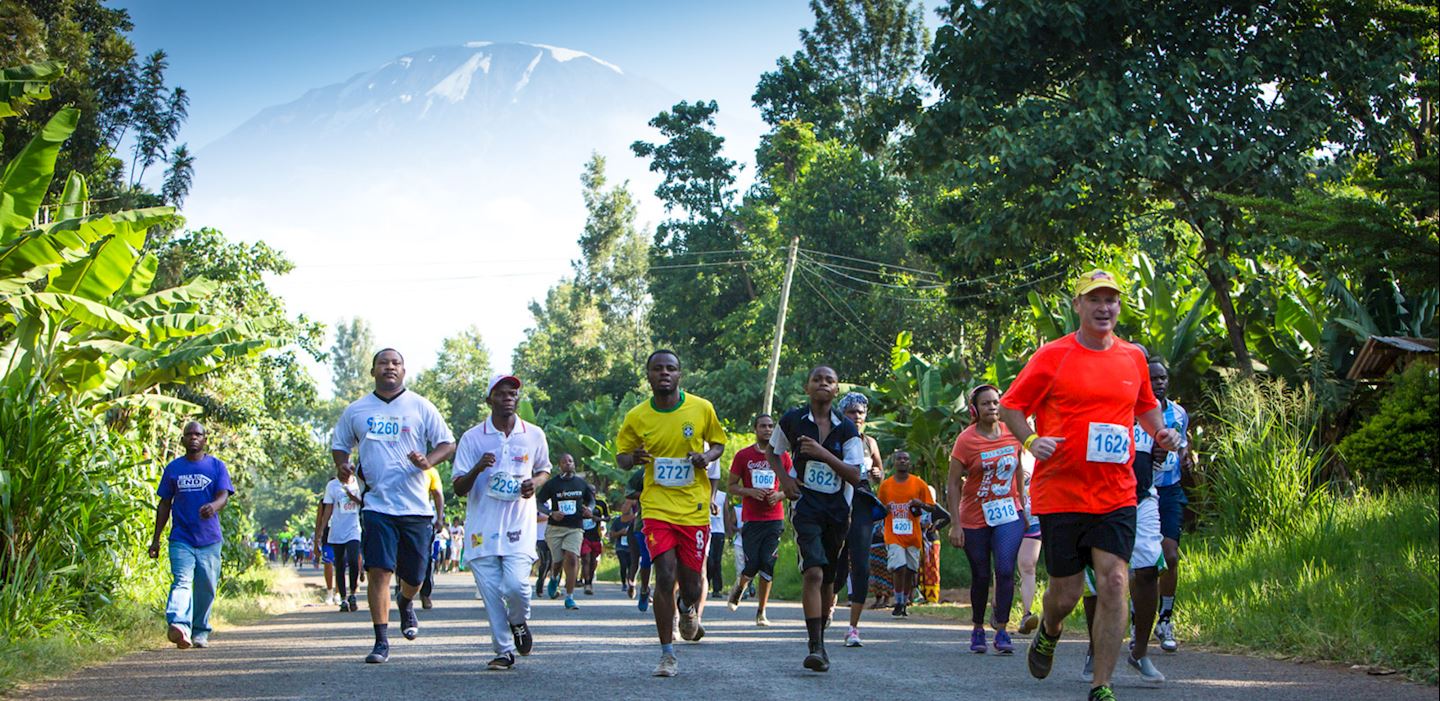
This weekend saw the twenty-first edition of the Kilimanjaro marathon. The race, which started as a very local affair involving mainly Tanzanians, has now grown to become one of the important sporting events on the continent, drawing participants from over 50 countries representing “all the continents of the world except Antarctica”, according to Aggrey Marealle, one of the organisers.
All ‘the Kili’ needed to happen was the coming together of a politician businessman of the Moshi area, Philemon Ndesamburo, who had a tourism business; John Addison, a tour operator from South Africa; a former athletics champion, Leonard Mandara, and Marealle, who was an executive of the national brewery, whose Kilimanjaro beer brand became the logo.
At its inaugural race, “the Kili” attracted only 750 runners, mainly locals, but now it boasts more than 13, 000 participants, and still counting.
Enticed into sporting
Indicators show that our people, though often faulted as non-sporting, can be enticed into sporting activities when the conditions are made favourable to such pastimes. Many years ago, a Norwegian non-governmental organisation ran a programme called “Sports for All’ and managed to attract hundreds of people in the Dar es Salaam area. As I was involved in sports administration then, I engaged with the programme from the government side.
I could not fail to notice that many of the people who came out to run and do aerobics were especially attracted to the T-shirts, caps and track-suits offered by the Norwegian sponsors—sometimes winners received cash prizes — and I warned against that practice, to no avail. The Norwegians had a budget approved in Oslo, and they had to spend it, while our locals liked to have shiny sports gear, and it was availed.
Run for their lives
My thinking, which came up against the grain, was that people should not be coaxed into doing sports because of T-shirts and caps, but rather they should run, literally, for their lives. What I feared came to pass eventually when the SFA programme wound down and our runners dried up, as I had thought would be the case.
Yet, happily, in a number of Dar es Salaam dormitory districts, jogging clubs started sprouting, and soon the towns upcountry bought into the idea. (There was a downside to this flurry of sporting clubs, though, in that after stepping out — usually in their sparkling new gear — the members jogged, ran, walked, sauntered, or otherwise carried their weights along for a few kilometres, before stumbling “accidentally” onto a well-known pub, where they settled till dusk in pursuit of non-sporting pleasures. My defence for this kind of aberration was that these people would have taken their nyama choma and beer anyway, so it was good that they had at least done a little sweating before the feast!).
Now, It is safe to say that every Tanzanian town that takes itself seriously has a marathon of one description or another; the new capital city, Dodoma, also boasts one, although ‘The Kili’ still reigns supreme and may stay that way for a number of years to come. It could easily grow into a truly international marathon to rival the big ones, London, Chicago, Tokyo, Rome…
Target African runners
But at this stage we should be targeting African runners, with whom we could soon craft an “Africathon” that could be rotated every year and Africans and non-Africans of all ages could run the continent, discovering Africa. These would also be occasions to discover and learn how our people live and exchange with their lived experiences
There are many ways to make the ideal of African unity a reality, but one is not through the African rulers of today who have patently refused to become leaders, preferring to remain rulers much as the colonial administrators were before them—just rulers. The “Africathon” should help to break that mould alongside other non-state interventions that should seek to liberate civic spaces from the clutches of state operatives, who, despite their monopolistic grip on civic spaces, have no clue on how to deploy these to advance Pan African thinking.
It is clear that more and more young men and women are finding new openings in sports that they were denied in other fields. All our governments in the region should deliberately invest in the quest to promote the Africathon and other sporting activities already known to our various communities. The Africathon could, for example, include tournaments of Senegalese wrestling and other ancient expressions of African virility and nimbleness.
But the promotion of sporting activities in our communities will require a lot of special rearrangements. The allocation of pieces of land in our neighbourhoods for recreation and sports and putting them under the care of local governance structures for protection and improvement, would be a great starting point. Getting recreational facilities close to where people live would help a great deal.
It would also help to make our roads more walker/jogger friendly by demarcating sidewalks, cycling and jogging lanes. We need to liberate our town roads and re-educate our drivers to make them understand that they have no monopoly on the use of our roads. The police forces also need to rein in the boda-boda riders who have been killing pedestrians and joggers from their laxity in observing traffic rules.
You may like
-


This Sudan war is too senseless; time we ended it, By Tee Ngugi
-


Air Peace, capitalism and national interest, By Dakuku Peterside
-


This is chaos, not governance, and we must stop it, By Tee Ngugi
-


Off we go again with public shows, humbug and clowning, By Jenerali Uliwengu
-


How patriarchy underpins gender violence today, By Tee Ngugi
-


Help! There’s a dangerous, secret plot to save the EAC from imminent death, By Charles Onyango-Obbo
Strictly Personal
This Sudan war is too senseless; time we ended it, By Tee Ngugi
Published
2 days agoon
April 28, 2024
Why are the Sudanese Armed Forces (SAF) and the paramilitary Rapid Support Forces (RPF) engaged in a vicious struggle? It is not that they have ideological, religious or cultural differences.
Not that people should fight because of these kinds of differences, but we live in a world where social constructions often lead to war and genocide. It is not that either side is fighting to protect democracy. Both sides were instruments of the rapacious dictatorship of Omar el-Bashir, who was overthrown in 2019.
Both are linked to the massacres in Darfur during Bashir’s rule that led to his indictment by the International Criminal Court for crimes against humanity. They both stood by as ordinary, unarmed people took to the streets and forced the removal of the Bashir regime.
None of these entities now fighting to the last Sudanese citizen has any moral authority or constitutional legitimacy to claim power. They both should have been disbanded or fundamentally reformed after the ouster of Bashir.
The SAF and the RSF are fighting to take over power and resources and continue the repression and plunder of the regime they had supported for so long. And, as you can see from news broadcasts, they are both well-versed in violence and plunder.
Since the fighting began in 2023, both sides have been accused of massacres that have left more than 30,000 people dead. Their fighting has displaced close to 10 million people. Their scramble for power has created Sudan’s worst hunger crisis in decades. Millions of refugees have fled into Chad, Ethiopia and South Sudan.
The three countries are dubious places of refuge. Chad is a poor country because of misrule. It also experiences jihadist violence. Ethiopia is still simmering with tensions after a deadly inter-ethnic war.
And South Sudan has never recovered from a deadly ethnic competition for power and resources. African refugees fleeing to countries from which refugees recently fled or continue to flee sums up Africa’s unending crisis of governance.
Africa will continue to suffer these kinds of power struggles, state failure and breakdown of constitutional order until we take strengthening and depersonalising our institutions as a life and death issue. These institutions anchor constitutional order and democratic process.
Strong independent institutions would ensure the continuity of the constitutional order after the president leaves office. As it is, presidents systematically weaken institutions by putting sycophants and incompetent morons in charge. Thus when he leaves office by way of death, ouster or retirement, there is institutional collapse leading to chaos, power struggles and violence. The African Union pretends crises such as the one in Sudan are unfortunate abnormally. However, they are systemic and predictable. Corrupt dictatorships end in chaos and violence.
Tee Ngugi is a Nairobi-based political commentator.
Strictly Personal
Air Peace, capitalism and national interest, By Dakuku Peterside
Published
2 weeks agoon
April 16, 2024
Nigerian corporate influence and that of the West continue to collide. The rationale is straightforward: whereas corporate activity in Europe and America is part of their larger local and foreign policy engagement, privately owned enterprises in Nigeria or commercial interests are not part of Nigeria’s foreign policy ecosystem, neither is there a strong culture of government support for privately owned enterprises’ expansion locally and internationally.
The relationship between Nigerian businesses and foreign policy is important to the national interest. When backing domestic Nigerian companies to compete on a worldwide scale, the government should see it as a lever to drive foreign policy, and national strategic interest, promote trade, enhance national security considerations, and minimize distortion in the domestic market as the foreign airlines were doing, boost GDP, create employment opportunities, and optimize corporate returns for the firms.
Admitted nations do not always interfere directly in their companies’ business and commercial dealings, and there are always exceptions. I can cite two areas of exception: military sales by companies because of their strategic implications and are, therefore, part of foreign and diplomatic policy and processes. The second is where the products or routes of a company have implications for foreign policy. Air Peace falls into the second category in the Lagos – London route.
Two events demonstrate an emerging trend that, if not checked, will disincentivize Nigerian firms from competing in the global marketplace. There are other notable examples, but I am using these two examples because they are very recent and ongoing, and they are typological representations of the need for Nigerian government backing and support for local companies that are playing in a very competitive international market dominated by big foreign companies whose governments are using all forms of foreign policies and diplomacy to support and sustain.
The first is Air Peace. It is the only Nigerian-owned aviation company playing globally and checkmating the dominance of foreign airlines. The most recent advance is the commencement of flights on the Lagos – London route. In Nigeria, foreign airlines are well-established and accustomed to a lack of rivalry, yet a free-market economy depends on the existence of competition. Nigeria has significantly larger airline profits per passenger than other comparable African nations. Insufficient competition has resulted in high ticket costs and poor service quality. It is precisely this jinx that Air Peace is attempting to break.
On March 30, 2024, Air Peace reciprocated the lopsided Bilateral Air Service Agreement, BASA, between Nigeria and the United Kingdom when the local airline began direct flight operations from Lagos to Gatwick Airport in London. This elicited several reactions from foreign airlines backed by their various sovereigns because of their strategic interest. A critical response is the commencement of a price war. Before the Air Peace entry, the price of international flight tickets on the Lagos-London route had soared to as much as N3.5 million for the economy ticket. However, after Air Peace introduced a return economy class ticket priced at N1.2 million, foreign carriers like British Airways, Virgin Atlantic, and Qatar Airways reduced their fares significantly to remain competitive.
In a price war, there is little the government can do. In an open-market competitive situation such as this, our government must not act in a manner that suggests it is antagonistic to foreign players and competitors. There must be an appearance of a level playing field. However, government owes Air Peace protection against foreign competitors backed by their home governments. This is in the overall interest of the Nigerian consumer of goods and services. Competition history in the airspace works where the Consumer Protection Authority in the host country is active. This is almost absent in Nigeria and it is a reason why foreign airlines have been arbitrary in pricing their tickets. Nigerian consumers are often at the mercy of these foreign firms who lack any vista of patriotism and are more inclined to protect the national interest of their governments and countries.
It would not be too much to expect Nigerian companies playing globally to benefit from the protection of the Nigerian government to limit influence peddling by foreign-owned companies. The success of Air Peace should enable a more competitive and sustainable market, allowing domestic players to grow their network and propel Nigeria to the forefront of international aviation.
The second is Proforce, a Nigerian-owned military hardware manufacturing firm active in Rwanda, Chad, Mali, Ghana, Niger, Burkina Faso, and South Sudan. Despite the growing capacity of Proforce in military hardware manufacturing, Nigeria entered two lopsided arrangements with two UAE firms to supply military equipment worth billions of dollars , respectively. Both deals are backed by the UAE government but executed by UAE firms.
These deals on a more extensive web are not unconnected with UAE’s national strategic interest. In pursuit of its strategic national interest, India is pushing Indian firms to supply military equipment to Nigeria. The Nigerian defence equipment market has seen weaker indigenous competitors driven out due to the combination of local manufacturers’ lack of competitive capacity and government patronage of Asian, European, and US firms in the defence equipment manufacturing sector. This is a misnomer and needs to be corrected.
Not only should our government be the primary customer of this firm if its products meet international standards, but it should also support and protect it from the harsh competitive realities of a challenging but strategic market directly linked to our national military procurement ecosystem. The ability to produce military hardware locally is significant to our defence strategy.
This firm and similar companies playing in this strategic defence area must be considered strategic and have a considerable place in Nigeria’s foreign policy calculations. Protecting Nigeria’s interests is the primary reason for our engagement in global diplomacy. The government must deliberately balance national interest with capacity and competence in military hardware purchases. It will not be too much to ask these foreign firms to partner with local companies so we can embed the technology transfer advantages.
Our government must create an environment that enables our local companies to compete globally and ply their trades in various countries. It should be part of the government’s overall economic, strategic growth agenda to identify areas or sectors in which Nigerian companies have a competitive advantage, especially in the sub-region and across Africa and support the companies in these sectors to advance and grow to dominate in the African region with a view to competing globally. Government support in the form of incentives such as competitive grants ,tax credit for consumers ,low-interest capital, patronage, G2G business, operational support, and diplomatic lobbying, amongst others, will alter the competitive landscape. Governments and key government agencies in the west retain the services of lobbying firms in pursuit of its strategic interest.
Nigerian firms’ competitiveness on a global scale can only be enhanced by the support of the Nigerian government. Foreign policy interests should be a key driver of Nigerian trade agreements. How does the Nigerian government support private companies to grow and compete globally? Is it intentionally mapping out growth areas and creating opportunities for Nigerian firms to maximize their potential? Is the government at the domestic level removing bottlenecks and impediments to private company growth, allowing a level playing field for these companies to compete with international companies?
Why is the government patronising foreign firms against local firms if their products are of similar value? Why are Nigerian consumers left to the hands of international companies in some sectors without the government actively supporting the growth of local firms to compete in those sectors? These questions merit honest answers. Nigerian national interest must be the driving factor for our foreign policies, which must cover the private sector, just as is the case with most developed countries. The new global capitalism is not a product of accident or chance; the government has choreographed and shaped it by using foreign policies to support and protect local firms competing globally. Nigeria must learn to do the same to build a strong economy with more jobs.
EDITOR’S PICK
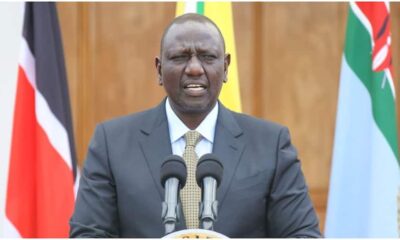

African leaders want record World Bank financing to address climate change
Ahead of a World Bank conference scheduled for later this year, African leaders on Monday called for rich countries to...
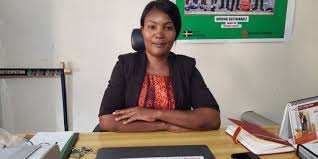

Conservationist, Kearns, names intolerance and digital media abuse as threats to media freedom
Nsama Kearns, the Executive Director of Care for Nature, speaks on the indispensable role of a free media in society....
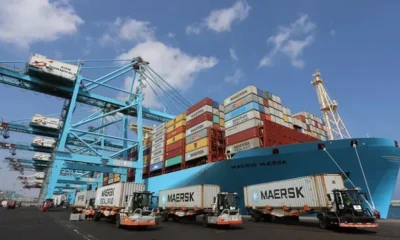

Nigeria gets $600 million investment from Danish firm Moller-Maersk
Nigeria’s presidency said on Sunday that President Bola Tinubu had secured an investment of $600 million from Danish shipping and...


Bolt Kenya teams up with M-KOPA to launch electric motorcycles
In a bid to improve driver earnings and combat climate change, ride-hailing platform, Bolt Kenya, has struck a partnership with...
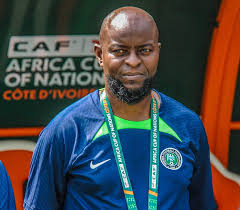

Nigeria’s football federation appoints Finidi George as Super Eagles coach
The Nigeria Football Federation (NFF) has approved the appointment of former international, Finidi George, as the new head coach of...
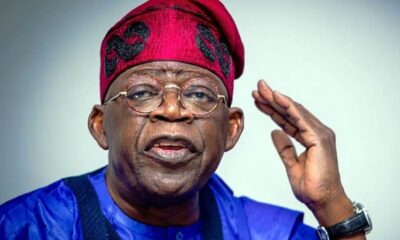

I saved Nigeria from bankruptcy by removing fuel subsidy— Tinubu
Nigerian President, Bola Tinubu, on Sunday, boasted that he saved Nigeria from going bankrupt by removing fuel subsidy on his...


Behind the News: All the backstories to our major news this week
Over the past week, there were lots of important stories from around the African continent, and we served you some...
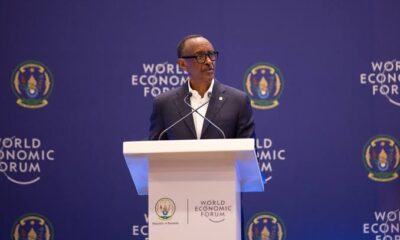

Video: How Rwanda is driving Ai revolution in Africa
In this video, the Managing Director of Rwanda’s Centre for the Fourth Industrial Revolution, Crystal Rugege, speaks on the country’s...


This Sudan war is too senseless; time we ended it, By Tee Ngugi
Why are the Sudanese Armed Forces (SAF) and the paramilitary Rapid Support Forces (RPF) engaged in a vicious struggle? It...
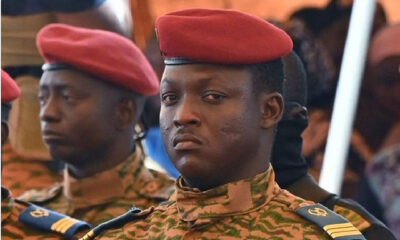

Burkina Faso investigating reports of northern killings
A government spokesman has revealed that Burkina Faso is looking into reports that 223 people were killed by the Burkinabe...
Trending
-

 Behind the News2 days ago
Behind the News2 days agoBehind the News: All the backstories to our major news this week
-

 Politics2 days ago
Politics2 days agoBurkina Faso investigating reports of northern killings
-
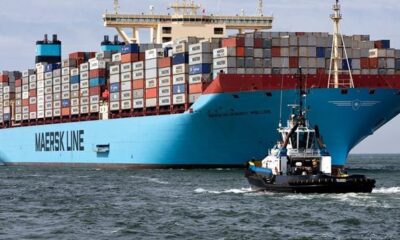
 Musings From Abroad2 days ago
Musings From Abroad2 days agoNigeria loses $9.2 billion to foreign shipowners
-

 VenturesNow2 days ago
VenturesNow2 days agoNigeria: Bureaux De Change operators to harmonise retail FX market


